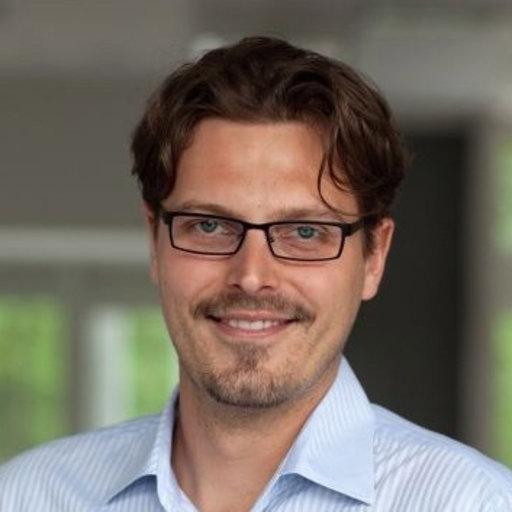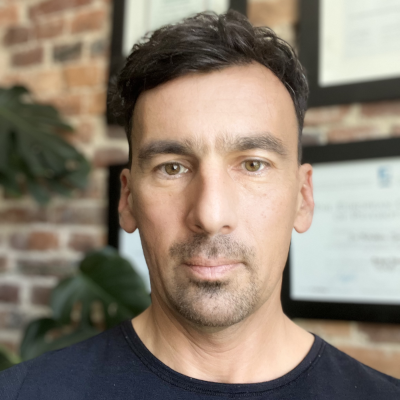In case of any technical or organizational problems, please contact: assistant@estd.org
The recording of this webinar will be available later only for ESTD members.

🗓 Date: May 27th
⏰ Time: 7 PM CET
📍 Free Online Event
Ever wondered about the hidden layers of auditory hallucinations? This groundbreaking webinar dives into the complexity of voice-hearing and explores how dissociative perspectives can enhance clinical understanding and treatment.
👥 Join Dr. Radosław Tomalski & Professor Igor Pietkiewicz as they present their latest published research,
💡 Don’t miss this chance to gain new insights
The experience of hearing voices is considered transdiagnostic and there are different explanatory models for this phenomenon. Although many psychotherapists conceptualise auditory verbal hallucinations (AVH) as “dissociative parts” and employ therapeutic techniques adopted from the field of dissociation, there is very little research exploring voices from this perspective. Voices present in dissociative identity disorder are usually highly complex and autonomous but there is very little research exploring AVH complexity in other clinical groups. This would have practical applications, helping clinicians identify patients for whom dissociation-based approaches to therapy could be more effective. The aim of this study was to operationalize the concept of voice complexity by identifying its different domains and indicators.
For this purpose, we used concept mapping, an established methodological approach based on the principles of participatory-action research, which involved three main tasks: 1) brainstorming, 2) sorting and rating, and 3) interpretation. There were 21 participants in the brainstorming activity (incl. 19 healthcare professionals; three persons were voice-hearers) who analyzed two interviews with people hearing voices and generated statements describing different aspects of voice-hearing complexity. All statements (N=173) were analyzed by the research team who eliminated duplicates or irrelevant statements and consolidated a master list of 32 items for the sorting and rating tasks. In these tasks, each participant reviewed and sorted conceptually similar statements into piles, labelled each pile, and rated each statement on a 5-point Likert scale, answering the question: What level of voice complexity does this feature indicate? (1 = very low; 5 = very high).
In this presentation we shall illustrate the development of the code book and how it can be used alongside the Structured Clinical Interview for Voice-Hearers (SCIV).
🔗 Access supplementary materials here: https://traumaidysocjacja.pl/sciv

Dr. Igor Pietkiewicz Associate professor at the Institute of Psychology, Ignatianum University in Cracow, the head of the Research Center for Trauma and Dissociation, a certified psychotherapist and psychotherapy supervisor. For many years, he has been a mentor and a board member of the European Society for Trauma & Dissociation, and ESTD President in 2022-2024. In his scientific work, he focuses on the impact of culture on health, coping strategies and help-seeking pathways. He has also led projects funded by the National Science Center, exploring changes in consciousness (depersonalization and derealization) and clinical presentations in individuals using exorcisms. He is also known for his research on maladaptive daydreaming. He has supervised master’s and doctoral theses in the field of psychology. For many years, he worked clinically at a Day-care Psychiatric Unit, offering assessment and group psychotherapy, supervising therapists, and co-ordinating a training program for psychotherapists-in-training, accredited by the Polish Psychiatric Association. He currently runs a private practice in Katowice, Poland, where he consults and treats adults with complex trauma and trains professionals in diagnostic assessment and psychotherapy. www.e-psyche.eu

Dr. Radosław Tomalski, Ph.D. in Medical Sciences, is a psychiatrist, psychotherapist, and supervisor affiliated with the Polish Psychiatric Association. He is an EMDR Europe consultant and an ESTD Clinical Mentor. With over 20 years of professional experience in public health system and private practice, he specializes in treating patients with psychosis and dissociative disorders while leading advanced training programs for psychotherapists. His expertise extends to trauma, dissociation, and psychosis psychotherapy, with a particular focus on voice-hearing patients.
Dr. Tomalski is deeply involved in international collaborations. He is the Polish country representative of the European Society for Trauma and Dissociation (ESTD) and the President of the Board of the Polish Society for a Psychological and Social Approach to Psychosis. This organization is affiliated with the International Society for Psychological and Social Approaches to Psychoses (ISPS).
As a researcher, Dr. Tomalski is associated with the Research Centre for Trauma and Dissociation at Ignatianum University in Kraków, where he contributes to advancing the understanding and treatment of trauma-related disorders. He has authored numerous publications and developed a specialized course in the psychotherapy of psychosis, alongside training in assessing trauma-related conditions.
The webinar is intended only for professionally occupied with diagnosis, treatment, research or teaching in the field of trauma, dissociation and disorders related to chronic traumatization.
In case of any technical or organizational problems, please contact: assistant@estd.org
The recording of this webinar will be available later only for ESTD members.